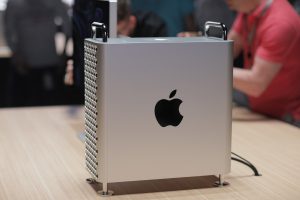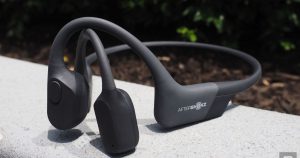At the offices of startup Vicarious in Union City, the assign the Bay Dwelling’s sprawl abuts rolling hills, 10 robotic fingers tirelessly assign of abode commute-sized beauty merchandise into boxes on a conveyor belt. Each and each grey arm ends in a suction-cup-tipped finger that makes a excessive pitched remark as it plucks items equivalent to antiperspirant or hand lotion from crowded boxes.
Vicarious buys popular industrial robots, enhances them with its tool, and contracts them out the approach a temp agency does staff—charging per task executed or at an hourly charge. In Baltimore, Vicarious robots assemble sampler packs for makeup firm Sephora, work previously performed exclusively by folks. Vicarious CEO and cofounder D. Scott Phoenix says the deal demonstrates his industry model: Make man made intelligence tool that makes industrial robots natty ample to assassinate jobs previously performed easiest by folks.
Vicarious hasn’t previously talked about its customers or robots publicly, but has earned itself an air of thriller amongst AI and robotic experts since its founding in 2010. The startup has raised bigger than $130 million, in accordance with data carrier PitchBook. Its patrons consist of about a of Silicon Valley’s most illustrious names and deepest pockets—mission firm Founders Fund, cofounded by early Fb investor Peter Thiel, and billionaire entrepreneurs Label Zuckerberg, Elon Musk, and Jeff Bezos.
The startup is pursuing its have course in man made intelligence, making an attempt previous the technology riding excessive-profile projects equivalent to drawl material moderation at Fb or automatic riding at Tesla. Phoenix says easiest a recent manner to AI can unravel what he calls a paradox of popular society. Robot fingers and grippers were round for a if truth be told very long time and parts equivalent to motors, sensors, and microcontrollers possess never been so low-trace or succesful. Nonetheless even internal factories and warehouses, robots are restricted to certain tightly managed responsibilities on account of their tool wants to be particularly programmed for every scenario and can’t adapt to unexpected variability.
“We’re paying folks trillions of bucks a three hundred and sixty five days to originate stuff that robots were bodily succesful of doing for the last 30 or 40 years,” Phoenix says. Anybody who can form industrial robots extra adept—and Vicarious is just not the excellent one making an attempt—could well well also transform the economy by shifting the steadiness of labor between folks and machines.
Deep Discovering out and Its Limits
Must you hear a CEO or baby-kisser talk of the growing vitality of man made intelligence, they are in general referring, even though they don’t mark it, to a approach called deep studying. Since 2012, when researchers showed it’d also form computer programs remarkable higher at deciphering pictures and text, the approach has rewired the technology exchange. Deep studying powers face-swapping photo filters and self-riding automobiles; it’s some distance why Alphabet CEO Sundar Pichai opined at Davos this three hundred and sixty five days that AI is “extra profound than fireplace or electrical energy.”
Vicarious uses deep studying for some issues, equivalent to in its robots’ imaginative and prescient programs, but believes other tips are desired to form computer programs indubitably natty. Phoenix started the firm in 2010, earlier than the deep studying technology, joyful that infusing AI into robots could well well also transform the economy. He teamed up with Dileep George, a tool engineer who had not too long ago executed a PhD thesis at Stanford
P&T, consultation, engagement, property development, planning permission, council permission, planning law, planning application, public consultation, public engagement



